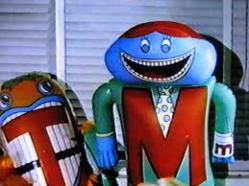Today, one of my colleagues told me that I’m the only Technical Writer on staff. Well, maybe in the English department here. And I wondered, is it possible? And what does that mean really? And finally, how does Technical Writing “fit” with the other courses and the department?
The core staple of Technical Writing is documentation–and yes, it comes in many forms: pdfs, videos, websites, word documents, and graphics.
 Remember those alphabet people in kindergarten? Quite frankly, I found them hideously frightening as a child and still do. Let’s face it: they were bigger than us at age 5/6 and quite intimidating. Back then, I had no sparkling premonition that I would spend my life teaching and creating my own alphabet people (in a sense).Or, maybe I did and that’s why I found them so scary.
Remember those alphabet people in kindergarten? Quite frankly, I found them hideously frightening as a child and still do. Let’s face it: they were bigger than us at age 5/6 and quite intimidating. Back then, I had no sparkling premonition that I would spend my life teaching and creating my own alphabet people (in a sense).Or, maybe I did and that’s why I found them so scary.
At it’s very essence, then, documentation is meant to teach, and it can happen in any mode. So, yes, Technical Writing and Digital Publishing can and do share many attributes: writing for the web, design, color, and at it’s very best, digital publishing genres might teach us, too. (Not that I’m knocking the entertainment value of DP at all–believe me, I’m having a serious love affair with my Kindle.)
So am I alone? Maybe in terms of all that high falutin’ design and technology, yes I am probably alone in the English department. I’m ok with this. I’d share it all in a heartbeat if anybody wanted to learn. And there are folks in the Office of Learning and Tech and the Education department who share my talents in greater and lesser extents that I can always pal around with and say, wow, isn’t that cool? Let’s learn that!
But in documentation terms, we all do it. Maybe some do it better than others, and maybe some try to do it in a visual manner (shudder at the alphabet people above), and maybe some give verbal directions, and maybe some give too many directions. However we do it, I am sure that we all do it to the very best of our abilities with the pedagogical approach that works for us. And this is ok.
So, on reflection, yes, I belong with the English folks, and so does Tech Writing, Writing for the Web, and Digital Publishing. And it’s ok to be the tech writer, the usability guru, the digital publishing whiz, the graphic designer, and the layout pro. And this is good, because behind all of the fancy documentation, graphic design, whirling, twirling, blinking web pages, what matters is the writing and how it’s done.
Here I Go Again On My Own



